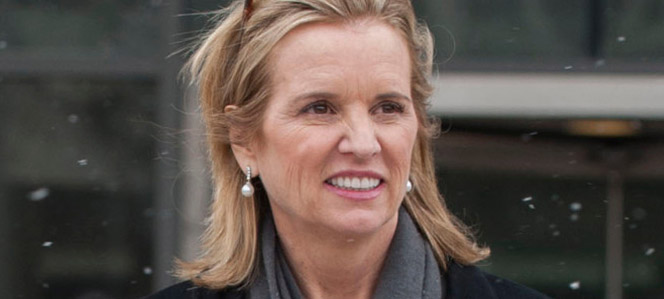 The Pathos of Liberal Catholicism
The Pathos of Liberal Catholicism
By Rev. Robert Barron
Kerry Kennedy, a daughter of Robert and Ethel Kennedy, has written a book that has made it onto the bestseller list. It is called Being Catholic Now: Prominent Americans Talk About Change in the Church and the Quest for Meaning. It features brief reflections from thirty-seven men and women, largely though not exclusively, drawn from the left-side of the Catholic spectrum. Though it’s always difficult to generalize when dealing with such a variety of contributors, I would like to draw attention to two themes that come up with great, and I must say, disturbing regularity in this book. The first is the favoring of “the faith” or “spirituality” over the institutional church, and the second is the reduction of Catholicism to the works of social justice.
In her preface to the text, Kennedy evokes, movingly enough, her intensely Catholic childhood, which involved frequent prayers, personal devotions, Bible reading, immersion in the lives of the saints, celebrations of the liturgical seasons, and regular attendance at Mass. But then she recounts the process by which she became gradually disillusioned with pompous bishops and out of touch priests. She tells us how her mother, if offended by an insensitive or long-winded homily, would simply get up and lead her brood of children out of church. The conclusion she draws is starkly stated: “I learned from her to distinguish between my faith and the Institutional Church.” Now, I know all about priests and bishops who sometimes say stupid things, and worse, sometimes do harmful things. I agree with Kennedy and many of her collaborators in the book that the clergy sex abuse scandal, in all of its ramifications, represented the prime example of this distortion of speech and abuse of power.
But this acknowledgment should never lead one to conclude that the faith is divorceable from the hierarchical structure of the church, as though the Catholic faith could float free of the pesky interference of priests and bishops. The church is neither a philosophical debating society nor a political party, but rather a mystical body, hierarchically ordered in such a way that authentic teaching and sacraments come through the ministrations of the ordained. What I saw in the image of Ethel Kennedy walking out of church in response to an offensive sermon was the Donatism of the left. In the fourth century, St. Augustine battled the Donatist heresy which held that only morally praiseworthy priests could legitimately administer the sacraments and preach. The great saint insisted that the power of word and sacrament does not come (thank God) from the personal worthiness of the minister but from Christ who works through them. So even today, the “faith” cannot be severed from the “institution,” even when that institution is represented, as it always is, by deeply flawed people.
The second theme that disturbed me could be found in almost every essay in the book. In reflection after reflection, we hear that Catholicism amounts to a passion for service to the poor and the marginalized. Again and again, the contributors said that what they prized the most in their Catholic formation was the inculcation of the principles of inclusivity, equality, and social justice. The Church’s social teaching comes in for a great deal of praise throughout the book. But in the vast majority of the pieces, no mention is made of distinctively Catholic doctrines such as the Trinity, the Incarnation, redemption, original sin, creation, or grace. For the most part, it would be very difficult to distinguish the social commitments of the contributors from those of a dedicated humanist of any or no religious affiliation. The problem here is that the social teaching of the church flows necessarily from and is subordinated to the doctrinal convictions of classical Christianity. We care for the poor precisely because we are all connected to one another through the acts of creation and redemption. More to it, we worry about the marginalized precisely because all of us are cells, molecules, and organs in a mystical body whose head is Christ risen from the dead. And our work on behalf of social justice is nourished by the eucharist which fully realizes and expresses the living dynamics of the mystical communion.
The great Catholic advocates of social justice in the twentieth century—Dorothy Day, Peter Maurin, Romano Guardini, Reynold Hillenbrand, Thomas Merton—were all deeply immersed in the doctrinal and liturgical traditions. No one would have mistaken any of them for a blandly secular humanist. My fear is that a Catholicism reduced to social justice will, in short order, perhaps a generation or two, wither away.
Being Catholic, now as at any other time, must always involve a living relationship with both the hierarchical church, made up as it is of flawed individuals, and with the doctrines and sacramental practices that flow from and refer to Christ Jesus. Without these connections, it loses its soul.
Published in Catholic New World
